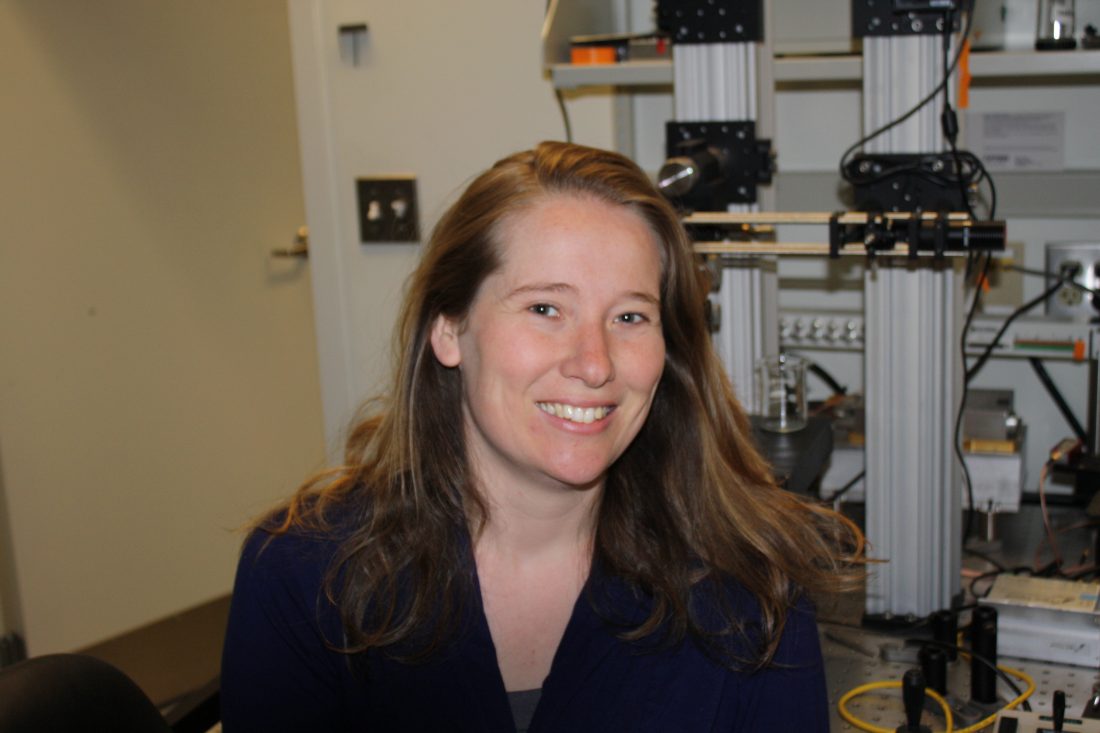Science and Mathematics
Coordinating Adhesion with Repulsion: How Cells Use Polymer Brushes to Orchestrate Life
May 13, 2021 at 3:30pm – 5:00pm EDT
Virtual (See event details)
This event has already occurred. The information may no longer be valid.

The Department of Physics in the College of Arts and Sciences is honored to welcome Dr. Jennifer Curtis to present their virtual physics colloquia.
Jennifer Curtis is a biophysicist and innovator who delights in the serendipitous opportunities that emerge from interdisciplinary research. Curtis’ research program focuses on cell mechanics, the physics of microbial communities, and novel technologies that facilitate research in soft matter and biophysics. She holds several patents, the most recent for her use of biological enzymes to fabricate the world’s thickest polymer brush. Curtis studied physics at Columbia University as an undergraduate and completed her PhD in physics at the University of Chicago. As a postdoctoral fellow at the University of Heidelberg, Curtis was an Alexander von Humboldt Fellow. Now an Associate Professor at Georgia Tech, Curtis’ research has been supported by an NSF Career Award and more recently by the Georgia Tech College of Sciences Cullen Peck award for Innovative Research (2020). In addition to her research, Curtis is passionate about building a supportive and diverse community in physics. These efforts have been recognized by a Georgia Tech College of Science Faculty Mentor Award, and the renewal of her NSF funded REU program entitled, ‘Broadening participation in physics,’ which is now in its 6th year.
Abstract:
Multi-cellular organisms rely on reversible adhesions to orchestrate the motion and organization of cells. To date, the physics of tissue has primarily focused on the molecular adhesions between cells and the balance of forces throughout the tissue. In this talk, Curtis will introduce an important but neglected physical mechanism that cells may use to break or weaken cellular adhesions in a controllable, dynamic fashion. At the heart of this control is cells’ ability to rapidly extrude giant sugar polymers to form a polymer brush-like structure at cell interfaces. Curtis will present compelling data that the repulsive forces generated by this compressed brush (glycocalyx) substantially modify the adhesive state of cells. Further, she will also show how we hijacked the cell’s method for tailoring its interface to generate a novel class of ultra-thick polymer brush. In turn, we use these tunable brushes as a model system to systematically explore the forces exerted by glycocalyx on adherent cells. Experiments clearly demonstrate that the enzymes can push polymer into tight confined spaces and drive cell deformation. In light of the observed upregulation of glycocalyx synthesis in biological events that require adhesion modulation, ranging from embryogenesis to synaptogenesis, Curtis will argue that controlled expression of sweet but repulsive polymers at the cell interface is a likely mechanism for tissue organization and regulation in multicellular organisms.
If you would like to join the physics department mailing list, please email phyadmin@syr.edu.
This event was first published on April 22, 2021 and last updated on April 26, 2021.
Event Details
- Category
- Science and Mathematics
- Type
- Talks
- Region
- Virtual
- Open to
- Alumni,
- Current Students,
- Faculty
- Organizer
- CAS-Department of Physics
- Contact
- Yudaisy Salomon Sargenton
phyadmin@syr.edu
3154433901
- Accessibility
- Contact Yudaisy Salomon Sargenton to request accommodations
